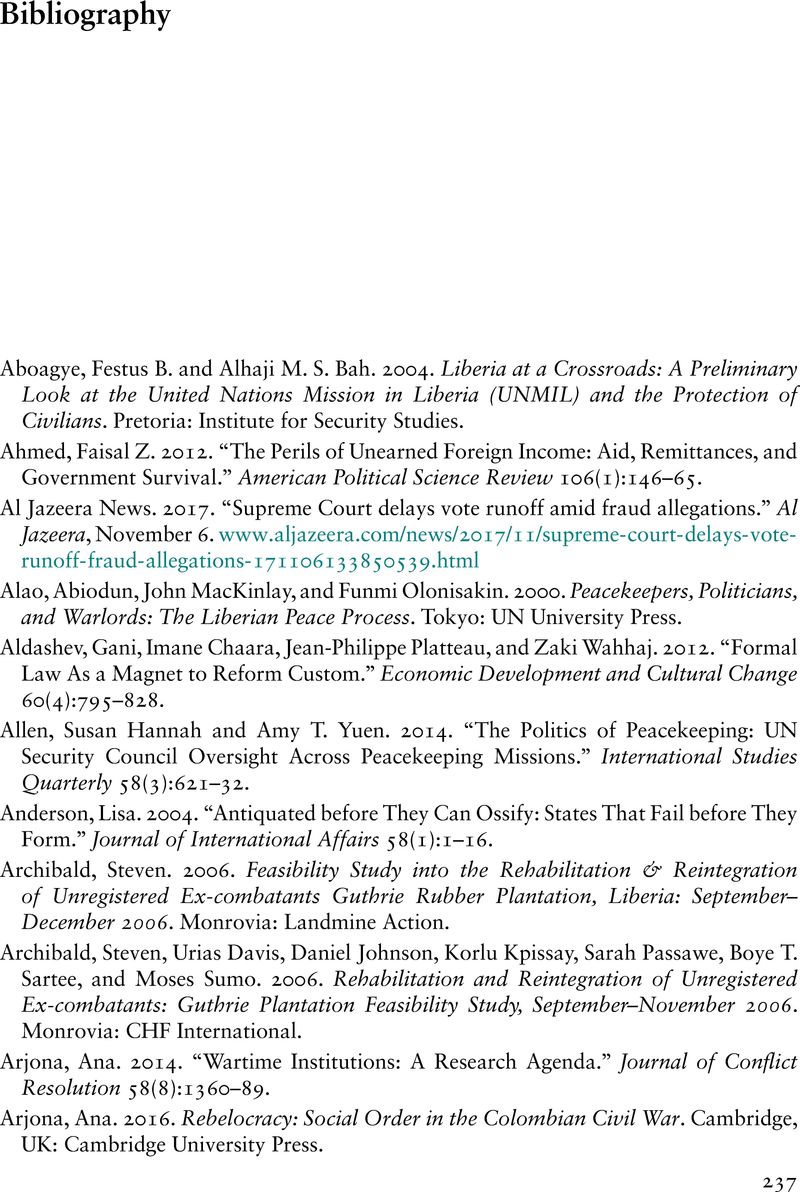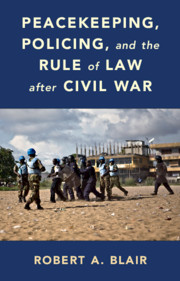Book contents
- Frontmatter
- Contents
- List of Figures
- List of Tables
- Acknowledgements
- List of Abbreviations
- 1 Introduction
- 2 History of UN Intervention and the Rule of Law after Civil War
- 3 Conceptual Framework: Civil War through a Legal Lens
- 4 Theoretical Framework: Restoring the Rule of Law after Civil War
- 5 Cross-national Evidence: UN Intervention and the Rule of Law across Africa
- 6 Sub-national Evidence I: The Rule of Law and Its Discontents in Liberia
- 7 Sub-national Evidence II: Evaluating the UN from the Bottom-Up
- 8 Sub-national Evidence III: UN Intervention and the Rule of Law in Liberia
- 9 Implications for Africa and beyond
- Bibliography
- Index
- References
Bibliography
Published online by Cambridge University Press: 09 November 2020
- Frontmatter
- Contents
- List of Figures
- List of Tables
- Acknowledgements
- List of Abbreviations
- 1 Introduction
- 2 History of UN Intervention and the Rule of Law after Civil War
- 3 Conceptual Framework: Civil War through a Legal Lens
- 4 Theoretical Framework: Restoring the Rule of Law after Civil War
- 5 Cross-national Evidence: UN Intervention and the Rule of Law across Africa
- 6 Sub-national Evidence I: The Rule of Law and Its Discontents in Liberia
- 7 Sub-national Evidence II: Evaluating the UN from the Bottom-Up
- 8 Sub-national Evidence III: UN Intervention and the Rule of Law in Liberia
- 9 Implications for Africa and beyond
- Bibliography
- Index
- References
Summary

- Type
- Chapter
- Information
- Peacekeeping, Policing, and the Rule of Law after Civil War , pp. 237 - 260Publisher: Cambridge University PressPrint publication year: 2020



